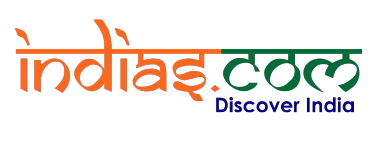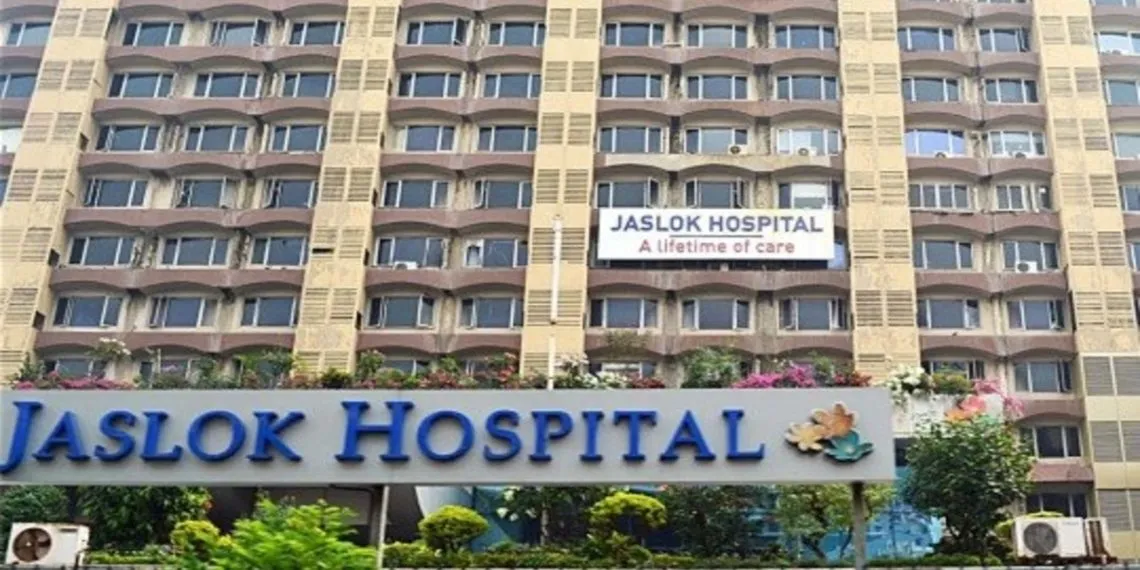Table of Contents
Mumbai Healthcare Landscape: A Comprehensive Overview
Mumbai, India's financial capital, hosts a dynamic healthcare ecosystem that serves millions across Maharashtra and beyond. From world-class tertiary hospitals to neighborhood clinics, Mumbai's medical infrastructure reflects both the city's economic prominence and the challenges of providing healthcare in a metropolis of nearly 20 million people.
Major Healthcare Institutions
Mumbai's healthcare landscape is anchored by several prestigious institutions that have shaped medical practice across India:
Public Sector Flagships:
- King Edward Memorial (KEM) Hospital: Founded in 1926, KEM stands as Mumbai's premier public teaching hospital with 1,800 beds and 390 ICU beds, handling over 1.8 million outpatients annually.
- Lokmanya Tilak Municipal General Hospital (Sion Hospital): A 1,400-bed facility serving Mumbai's central suburbs while training medical professionals.
- BYL Nair Hospital: A historic institution dating to 1921 that combines clinical care with research and education.
- JJ Hospital: Maharashtra's largest government hospital with 1,352 beds, established in 1845 as the city's first teaching hospital.
Private Healthcare Leaders:
- Kokilaben Dhirubhai Ambani Hospital: A 750-bed multi-specialty facility pioneering advanced medical technology.
- Lilavati Hospital: A 323-bed charitable institution known for cardiac care and other specialties.
- Breach Candy Hospital: An iconic 212-bed hospital favored by Mumbai's elite and diplomatic community.
- Jaslok Hospital: Established in 1973 as one of India's first world-class private hospitals.
- Hinduja Hospital: A center of excellence for neurosciences, cardiac care, and transplantation.
- Fortis Hospital (Mulund): Part of a national chain offering comprehensive care across specialties.
Specialized Medical Centers
Cancer Care
Mumbai houses distinguished cancer treatment facilities:
- Tata Memorial Centre: India's premier cancer center handling over 70,000 new patients yearly, combining treatment, research, and education.
- Advanced Centre for Treatment, Research and Education in Cancer (ACTREC): Tata Memorial's research hub in Navi Mumbai.
- Kokilaben Dhirubhai Ambani Hospital Cancer Centre: Offering comprehensive oncology services including robotic surgery.
Cardiac Care
Mumbai pioneered cardiac care in India through institutions like:
- Asian Heart Institute: Performing over 3,500 cardiac surgeries annually with success rates comparable to international benchmarks.
- Fortis Hospital (Mulund): A center of excellence for cardiac sciences.
- Lilavati Hospital Cardiac Centre: Known for complex cardiac interventions.
Neurological Sciences
Specialized neurology and neurosurgery centers include:
- Kokilaben Dhirubhai Ambani Hospital Neurosciences Centre: Equipped with advanced neurodiagnostics and surgical capabilities.
- PD Hinduja Hospital Neurosciences: Recognized for complex neurosurgical procedures and stroke management.
- Wockhardt Hospitals: Specializing in minimally invasive neurosurgery.
Suburban and Peripheral Healthcare
While central Mumbai hosts the most prestigious facilities, substantial healthcare infrastructure extends into suburban and peripheral regions:
- Navi Mumbai: Emerging as a healthcare hub with Apollo Hospital, Fortis Hiranandani Hospital, and the upcoming AIIMS Navi Mumbai.
- Western Suburbs: Served by Cooper Hospital, Nanavati Hospital, and numerous private facilities.
- Central Suburbs: Home to Rajawadi Hospital, Fortis (Mulund), and Jupiter Hospital (Thane).
- Eastern Suburbs: Serviced by Godrej Memorial Hospital and various municipal facilities.
The periphery of Mumbai Metropolitan Region faces healthcare challenges typical of rural India, with primary healthcare centers and community health centers forming the backbone of rural healthcare delivery.
Surgical Excellence
Mumbai has established itself as a center for advanced surgical procedures:
- Organ Transplantation: Institutions like Global Hospital and Jaslok Hospital perform kidney, liver, heart, and other organ transplants.
- Robotic Surgery: Available at Kokilaben Dhirubhai Ambani Hospital, Sir HN Reliance Foundation Hospital, and others for precise, minimally invasive procedures.
- Minimally Invasive Surgery: Widely practiced across specialties, reducing hospital stays and recovery times.
Plastic and Reconstructive Surgery
Mumbai hosts renowned centers for plastic surgery:
- Bombay Hospital Institute of Medical Sciences: Offers comprehensive aesthetic and reconstructive procedures.
- JJ Hospital Department of Plastic Surgery: One of the oldest in India, balancing reconstructive work with training.
- Private practices in affluent neighborhoods like Bandra, Juhu, and South Mumbai cater to cosmetic surgery demands.
Diagnostic Infrastructure
The city's diagnostic landscape combines hospital-integrated facilities with standalone centers:
- Metropolis Healthcare: Headquartered in Mumbai with over 2,500 collection centers nationally.
- SRL Diagnostics: Operating numerous centers across Mumbai.
- Thyrocare: Pioneering cost-effective diagnostic services.
Advanced imaging technologies including MRI, CT, PET-CT, and interventional radiology are available at major hospitals and specialized imaging centers throughout the city.
Healthcare Workforce
Physicians
Mumbai has one of India's highest concentrations of doctors, though the distribution reflects urban-rural disparities. The city's physician density approximates 1:500 in central areas but decreases significantly in peripheral regions. Mumbai accounts for approximately 18,000 of Maharashtra's 165,000 registered doctors.
Nursing Professionals
Mumbai's healthcare system employs tens of thousands of nursing professionals trained at prestigious institutions like KEM Hospital College of Nursing and Breach Candy Hospital College of Nursing. The city faces ongoing challenges in nursing retention due to international migration, particularly to the Gulf states, UK, USA, and Australia.
Allied Health Professionals
The metropolitan area hosts numerous training programs for physiotherapists, laboratory technicians, radiographers, and other allied health professionals. The All India Institute of Physical Medicine and Rehabilitation serves as a center of excellence for rehabilitation sciences.
Medical Education
Mumbai's reputation as a medical education hub is built around several prestigious institutions:
- Seth GS Medical College (affiliated with KEM Hospital): Established in 1926, producing approximately 200 MBBS graduates annually.
- Grant Medical College (affiliated with JJ Hospital): India's third-oldest medical institution, training around 200 MBBS students yearly.
- Topiwala National Medical College (affiliated with BYL Nair Hospital): Offering undergraduate and postgraduate medical education to approximately 100 students per year.
- Lokmanya Tilak Municipal Medical College: Training approximately 100 MBBS students annually.
The Mumbai metropolitan region houses approximately:
- 15 medical colleges (public and private)
- 18 dental colleges
- 40+ nursing schools and colleges
- Numerous allied health science institutions
Medical education in Mumbai produces approximately:
- 1,200 MBBS graduates annually
- 800 dental graduates
- 3,000+ nursing graduates
International Medical Tourism
Mumbai has emerged as a significant destination for international patients seeking quality healthcare at competitive costs. The city's advantages include:
- Advanced medical technology at one-tenth the cost of Western countries
- English-speaking medical professionals
- Internationally accredited hospitals
- Specialized packages combining treatment with recuperation
Hospitals like Jaslok, Lilavati, and Kokilaben Dhirubhai Ambani Hospital maintain international patient departments catering primarily to visitors from the Middle East, Africa, and SAARC nations.
Preventive Healthcare Initiatives
Preventive healthcare in Mumbai operates at multiple levels:
- Public Health Department of Municipal Corporation of Greater Mumbai (MCGM): Oversees disease surveillance, vector control, and preventive health programs.
- Corporate preventive health packages: Offered by private hospitals for executive health screening.
- Community outreach programs: Conducted by major institutions including health camps and awareness initiatives.
- School health programs: Regular health check-ups in municipal and private schools.
Government Support and Policies
Healthcare in Mumbai benefits from several government initiatives:
- Pradhan Mantri Jan Arogya Yojana (PM-JAY)/Mahatma Jyotiba Phule Jan Arogya Yojana: Providing health insurance coverage to economically vulnerable families.
- Mumbai District AIDS Control Society: Coordinating HIV prevention and treatment.
- National Urban Health Mission: Focusing on slum health services.
- Public-Private Partnerships: For specialized treatments and diagnostic services.
Challenges and Opportunities
Despite its advanced healthcare infrastructure, Mumbai faces significant challenges:
- Access disparities: World-class care remains inaccessible to millions living in informal settlements.
- Infrastructure strain: Public hospitals operate at 150-200% capacity.
- Healthcare workforce shortages: Particularly in public facilities and specialized care.
- Rising costs: Private healthcare costs increasingly outpace average income growth.
- Disease burden transition: Managing the dual burden of communicable and non-communicable diseases.
Opportunities for Mumbai's healthcare sector include:
- Digital health integration: Telemedicine and AI-assisted diagnostics reaching underserved communities.
- Public health system strengthening: Through increased public expenditure and governance reforms.
- Health-tech innovation: Mumbai's startup ecosystem addressing healthcare challenges.
- Integration of traditional medicine: Combining Ayurveda, Yoga, and modern medical approaches.
- Training hub expansion: Meeting national and international demand for healthcare professionals.
Future Trajectory
Mumbai's healthcare landscape is evolving with several emerging trends:
- Consolidation of hospital chains: Creating healthcare networks across the metropolitan region.
- Specialty-focused centers of excellence: Focusing on specific disease areas or procedures.
- Value-based healthcare models: Emphasis on outcomes rather than service volume.
- Precision medicine approaches: Tailoring treatments based on genetic and molecular profiling.
- Geriatric care expansion: Addressing needs of Mumbai's aging population.
Mumbai's healthcare system reflects both India's aspirations and challenges in healthcare delivery. While home to institutions that match global standards, the city continues to address fundamental questions of access, affordability, and equity. As India's healthcare sector evolves, Mumbai remains at the forefront of both innovation and the struggle to provide quality care to an immense and diverse population.







